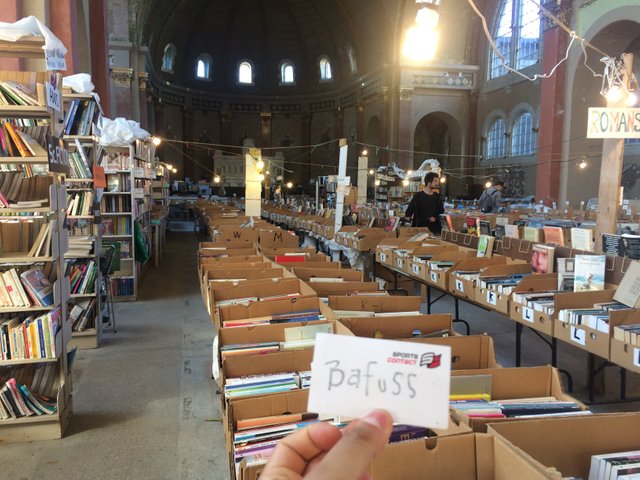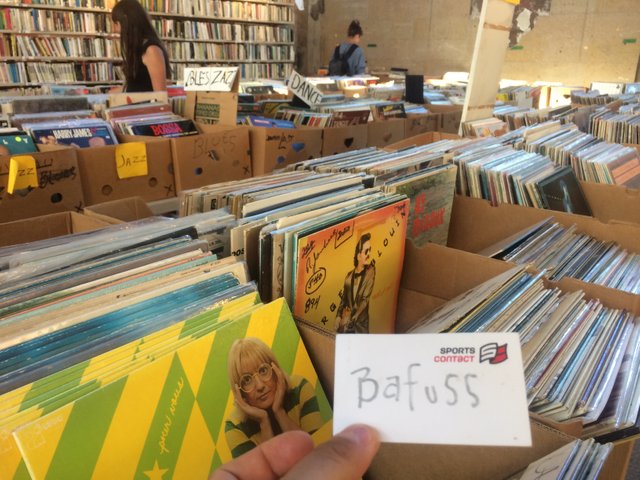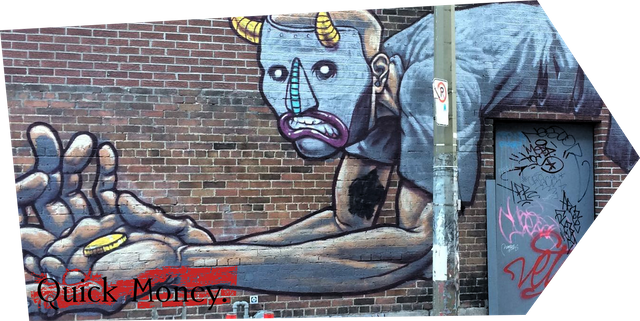Bafuss | The bazaar Church.

The bazaar church by @cnandofer
For what I know, Québec used to be a very religious province. I think that if you go to any little town in the province you can be sure that you'll find two things:
1.- A church.
2.- A SAQ.
While the SAQ (the state-owned alcohol shops monopoly) is definitely open, running and probably making a lot of money, the churches are closed and in some places are visited by just hundreds of people.
Because of the alcohol monopoly; making impossible for the church to make money from selling consecration wine, some of the churches of the province have been sold as a real state with the purpose of developing business ideas.
The church that I visited today is the Église Saint-Cœur-de-Marie, it's a church from 1919 that now is a bazaar that is full of books and LPs. I spent around one hour just looking a little bit into everything they had and ended up with two books for $4.00.

Books & Vinil for everyone. By @cnandofer
I've been reading that there is a lawyer's relationship between the owner of the church and the city of Québec so it may not be long before this church becomes something else. That's why I'll go there as often as I can.




The reason churches are deserted is because of the quiet revolution in the second half of the 20th century following the Duplessis government and not the inability to buy consecration wine.
https://en.wikipedia.org/wiki/Quiet_Revolution
https://fr.wikipedia.org/wiki/R%C3%A9volution_tranquille
Quiet Revolution
The Quiet Revolution (French: Révolution tranquille) was a period of intense socio-political and socio-cultural change in the Canadian province of Quebec, characterized by the effective secularization of government, the creation of a welfare state (état-providence), and realignment of politics into federalist and sovereignist factions and the eventual election of a pro-sovereignty provincial government in the 1976 election. The Quiet Revolution typically refers to the efforts made by the Liberal governments of Jean Lesage (elected in 1960) and Robert Bourassa (elected in 1970), though given the profound effect of the changes, most provincial governments since the early 1960s have maintained an orientation based on core concepts developed and implemented in that era.
A primary change was an effort by the provincial government to take more direct control over the fields of health care and education, which had previously been in the hands of the Roman Catholic Church. It created ministries of Health and Education, expanded the public service, and made massive investments in the public education system and provincial infrastructure.
So that is the reason... It had to be something more complicated than the consecration wine definitely hahahah.